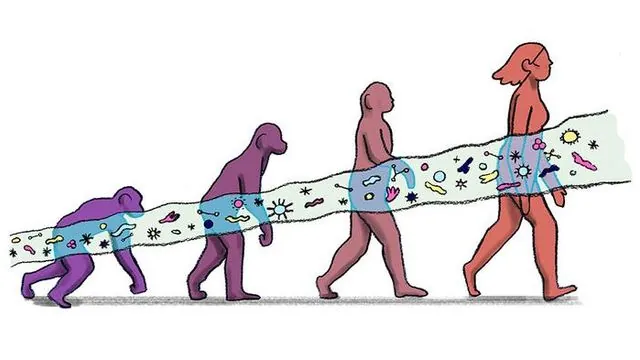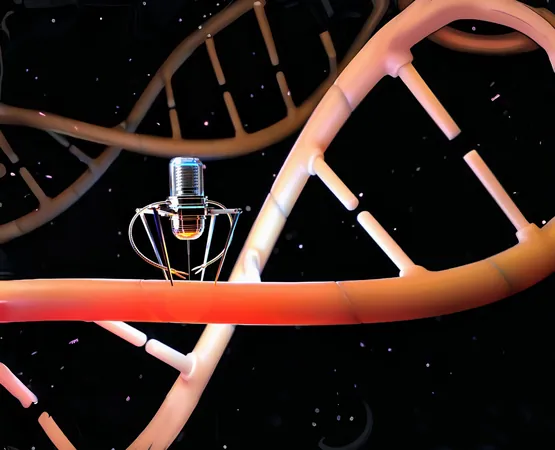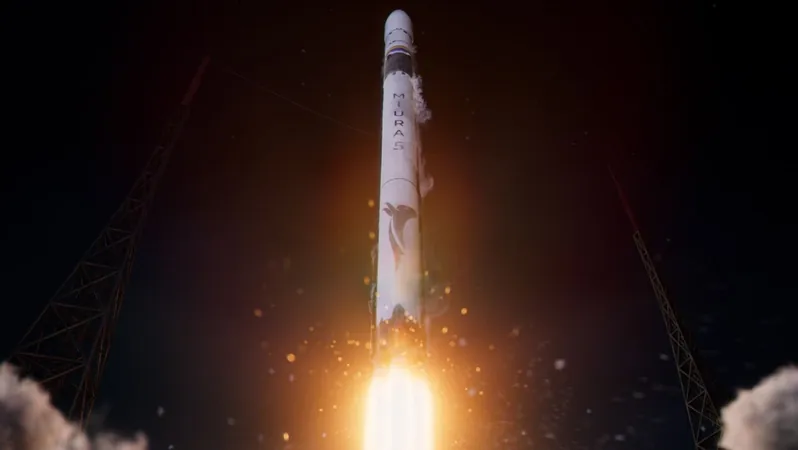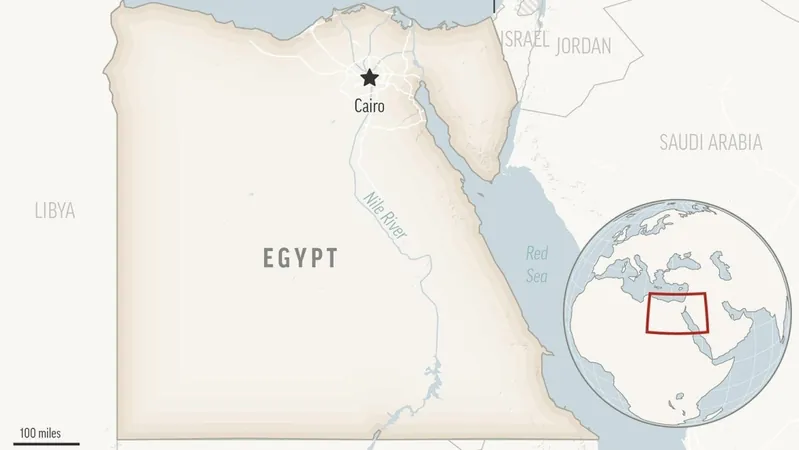
Gut Microbes: The Unexpected Key to Our Brainy Evolution?
2024-12-03
Author: Liam
How did humans come to possess such large brains?
The surprising answer could be hiding in our gut microbiota.
Recent groundbreaking research from Northwestern University has unveiled a fascinating possibility: gut microbes might have significantly contributed to the energy demands necessary for the evolution of larger brains throughout primate history. This innovative study, published in Microbial Genomics, sheds new light on the intricate relationship between our gut flora and brain development.
The Energy Demand of Our Evolved Brain
The human brain is an extraordinary biological achievement, notable for its size and complexity compared to other primates. However, supporting such a large brain requires substantial energy. To put it into perspective, brain tissue demands around 20 times more energy than the same mass of muscle tissue, mainly due to the brain’s essential functions like neuronal signaling and synapse formation. This creates a significant evolutionary dilemma: how can organisms secure enough energy for such an energy-hungry brain without compromising vital bodily functions?
While several theories have attempted to tackle this question, including the "Expensive Tissue Hypothesis," which proposes that humans evolved smaller guts to allocate energy for larger brains, the role of gut microbes in this phenomenon has remained largely unexplored.
The Missing Link: Gut Microbes and Brain Energy
Dr. Katherine Amato, an anthropology associate professor at Northwestern, emphasizes that variations in gut microbiota could be a critical yet overlooked factor influencing primate metabolism and brain size. The gut microbiome plays a crucial role in breaking down food and producing energy-rich compounds, such as short-chain fatty acids, that help regulate metabolism, glucose handling, and fat storage.
Interestingly, evidence from metabolic disease studies suggests that gut microbes could significantly influence how organisms meet the energy demands of complex tissues, including our brains. "The community of microbes in the large intestine can produce compounds that affect various aspects of human biology," Dr. Amato explained, indicating their potential role in conditions like insulin resistance and obesity.
Experimental Insights: Mice Studies Reveal Surprising Patterns
In a fascinating experiment, Amato and her team transplanted gut microbes from three groups: humans, squirrel monkeys (which have relatively large brains), and macaques (with smaller brains) into germ-free mice. By monitoring energy expenditure, blood glucose levels, and fat storage tendencies, the researchers uncovered some compelling differences.
Mice that received microbes from humans and squirrel monkeys exhibited elevated blood glucose levels and higher energy utilization, pointing to a metabolic adjustment potentially aligned with supporting the energy needs of their larger brains. In contrast, mice with macaque microbes showed a pronounced tendency to hoard energy as fat, highlighting a reliance on energy reserves rather than immediate energy consumption.
"The most significant observation was the stark contrast between the metabolic patterns of large-brained primates like humans and squirrel monkeys versus smaller-brained primates like macaques," Dr. Amato noted.
An Evolutionary Perspective: Gut Microbes and Cognition
Their findings imply that the gut microbiome may have been instrumental in supporting the metabolic needs of larger brains during primate evolution. As larger brains emerged in species like humans, specific microbial communities could have evolved to meet their unique energy demands. This discovery opens up tantalizing avenues for understanding how gut microbiota might have aided the development of advanced cognitive functions.
In a fascinating parallel, Dr. Amato points out that when both humans and squirrel monkeys evolved larger brains, their gut microbial communities adapted in similar ways to meet the heightened energy requirements.
Next Steps: Exploring the Primate Microbiome
This ambitious research effort doesn’t stop here. The authors are eager to broaden their study to encompass a wider variety of primate species to gain deeper insights into the microbial influence on metabolism and brain evolution.
In summary, we may have been looking in the wrong places for the keys to our brain's evolution. As science continues to unveil the complexities of our gut microbiome, we might just be scratching the surface of understanding the many ways these tiny organisms shape our biology and our very humanity.
Stay tuned for more groundbreaking discoveries that could reshape our understanding of evolution, health, and what it means to be human!









 Brasil (PT)
Brasil (PT)
 Canada (EN)
Canada (EN)
 Chile (ES)
Chile (ES)
 España (ES)
España (ES)
 France (FR)
France (FR)
 Hong Kong (EN)
Hong Kong (EN)
 Italia (IT)
Italia (IT)
 日本 (JA)
日本 (JA)
 Magyarország (HU)
Magyarország (HU)
 Norge (NO)
Norge (NO)
 Polska (PL)
Polska (PL)
 Schweiz (DE)
Schweiz (DE)
 Singapore (EN)
Singapore (EN)
 Sverige (SV)
Sverige (SV)
 Suomi (FI)
Suomi (FI)
 Türkiye (TR)
Türkiye (TR)